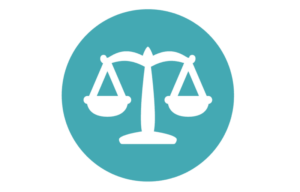Clearview AI is on the verge of wrapping up one of its lawsuits in Illinois. The ACLU filed the suit back in May of 2020, alleging that the company’s practice of scraping photographs from social media violated the state’s Biometric Information Privacy Act (BIPA). Clearview would eventually terminate all of its private and public contracts in the state in an attempt to get ahead of its legal challenges.

However, the two sides seem to have reached a settlement that goes well beyond the borders of Illinois. The settlement still needs the approval of the court, but if it goes through, it will bar Clearview from giving most individuals and private entities in the United States access to its extensive facial recognition database. It will also prevent Clearview from entering into contracts with government agencies in Illinois for another five years, though the company is permitted to work with the government in other states and at the federal level.
The settlement would seem to hinder Clearview’s immediate growth prospects, insofar as the company was hinting that it wanted to return to the private sector as recently as April. Clearview nevertheless framed the settlement as a win, largely because the company is still able to sell its facial recognition algorithm to clients in the private sector, as long as those clients cannot gain access to the database that was used to build it. With that in mind, Clearview indicated that the settlement will not require any change in business strategy, since the company had already announced plans to release a new face-matching service that would comply with the terms of the new arrangement.
In that regard, it is worth noting that such a service would be comparable to many of the facial recognition products that are currently on the market. The database (which now contains more than 20 billion images) was always the most controversial component of Clearview’s platform, since the images in that database were generally taken without any form of consent, and Clearview was often cavalier about giving associates access to that information.
The new settlement does not force Clearview to admit liability, so the settlement is ultimately not a referendum on the company’s data collection practices in the United States. Having said that, foreign administrators have ruled that the company’s activities have violated privacy laws in other countries.
Clearview will be compelled to spend $50,000 to inform Illinois residents of their ability to opt out of Clearview searches, in which case their likeness will not appear in any results. It will also not be able to give free trials to any individual police officers, unless those officers have the explicit approval of their superiors. Those free trials often allowed Clearview to circumvent official oversight channels, and drew strong criticism from privacy advocates. The ACLU, meanwhile, believes that the settlement demonstrates the strength of state-level privacy laws, and encouraged other states to implement their own BIPA-style legislation.
Sources: Reuters, TechCrunch
–
May 11, 2022 – by Eric Weiss



Follow Us